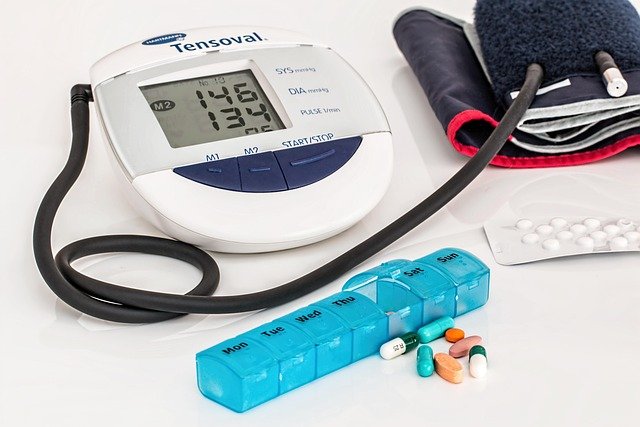Early Warning Signs of Heart Failure and Valve Disease
Heart failure and heart valve disease can show early warning signs. Learn about heart failure symptoms and how to spot signs of heart valve disease. Understand when to seek medical advice for a failing heart valve and take steps toward better heart health.

What Are the Early Signs of Heart Valve Disease?
Heart valve disease occurs when one or more of the heart’s valves don’t function properly, affecting blood flow through the heart. Early signs of heart valve disease can be subtle and may include:
-
Shortness of breath, especially during physical activity or when lying down
-
Fatigue and weakness, particularly during exertion
-
Swelling in the ankles, feet, or abdomen
-
Heart palpitations or irregular heartbeat
-
Chest discomfort or pain
-
Dizziness or fainting spells
These symptoms may develop gradually over time, making them easy to overlook or attribute to other factors such as aging or lack of exercise.
How to Recognize a Failing Heart Valve
Recognizing a failing heart valve often requires attention to specific symptoms and changes in overall health. Some key indicators include:
-
A heart murmur detected during a physical examination
-
Decreased exercise tolerance and increased fatigue
-
Persistent cough, especially when lying down
-
Rapid weight gain due to fluid retention
-
Shortness of breath that worsens over time
-
Swelling in the legs, ankles, and feet that doesn’t improve with rest
It’s important to note that not all heart valve issues cause noticeable symptoms in their early stages. Regular check-ups with a healthcare provider can help detect potential problems before they become severe.
Heart Failure Prevention Strategies
While some risk factors for heart failure are beyond our control, there are several strategies that can help reduce the risk of developing this condition:
-
Maintain a healthy diet rich in fruits, vegetables, whole grains, and lean proteins
-
Exercise regularly, aiming for at least 150 minutes of moderate-intensity aerobic activity per week
-
Manage stress through relaxation techniques, meditation, or counseling
-
Control blood pressure and cholesterol levels through lifestyle changes and medication if necessary
-
Quit smoking and limit alcohol consumption
-
Maintain a healthy weight
-
Get adequate sleep and manage sleep disorders like sleep apnea
-
Monitor and control diabetes if you have it
Implementing these strategies can significantly reduce the risk of heart failure and improve overall cardiovascular health.
When to Consult a Doctor for Heart Issues
Knowing when to seek medical attention for heart-related concerns is crucial. Consider consulting a doctor if you experience:
-
Persistent shortness of breath, especially at rest or with minimal exertion
-
Chest pain or discomfort that doesn’t go away with rest
-
Rapid or irregular heartbeat that persists
-
Sudden weight gain or swelling in the legs, ankles, or feet
-
Difficulty lying flat due to breathing problems
-
Persistent cough or wheezing, especially when lying down
-
Fainting or severe dizziness
-
Decreased ability to exercise or perform daily activities
Early intervention can prevent complications and improve treatment outcomes, so it’s always better to err on the side of caution when it comes to heart health.
Treatment Options and Medical Care
| Treatment Option | Description | Typical Use Cases |
|---|---|---|
| Medications | Various drugs to manage symptoms and improve heart function | Mild to moderate heart failure, valve disease management |
| Lifestyle Changes | Diet, exercise, and stress management modifications | All stages of heart failure and valve disease |
| Valve Repair/Replacement | Surgical or minimally invasive procedures to fix or replace damaged valves | Severe valve disease or dysfunction |
| Cardiac Resynchronization Therapy | Implantation of a device to coordinate heart contractions | Moderate to severe heart failure with specific ECG findings |
| Heart Transplant | Surgical replacement of a diseased heart with a healthy donor heart | End-stage heart failure unresponsive to other treatments |
Prices, rates, or cost estimates mentioned in this article are based on the latest available information but may change over time. Independent research is advised before making financial decisions.
Treatment for heart failure and valve disease depends on the severity of the condition and individual patient factors. Options range from lifestyle modifications and medications to surgical interventions. The goal of treatment is to improve symptoms, enhance quality of life, and prevent disease progression.
Medications such as ACE inhibitors, beta-blockers, and diuretics are often prescribed to manage heart failure symptoms and improve heart function. For valve disease, medications may be used to control symptoms and reduce the workload on the heart.
In more advanced cases, surgical interventions like valve repair or replacement may be necessary. Minimally invasive procedures have made these treatments more accessible to a broader range of patients.
Regular follow-up care and ongoing management are essential components of heart failure and valve disease treatment. Patients often work closely with a team of healthcare providers to monitor their condition and adjust treatment plans as needed.
In conclusion, understanding the early warning signs of heart failure and valve disease is crucial for timely intervention and effective management. By recognizing symptoms, implementing prevention strategies, and seeking appropriate medical care, individuals can take proactive steps to protect their heart health and improve their overall quality of life.
This article is for informational purposes only and should not be considered medical advice. Please consult a qualified healthcare professional for personalized guidance and treatment.




